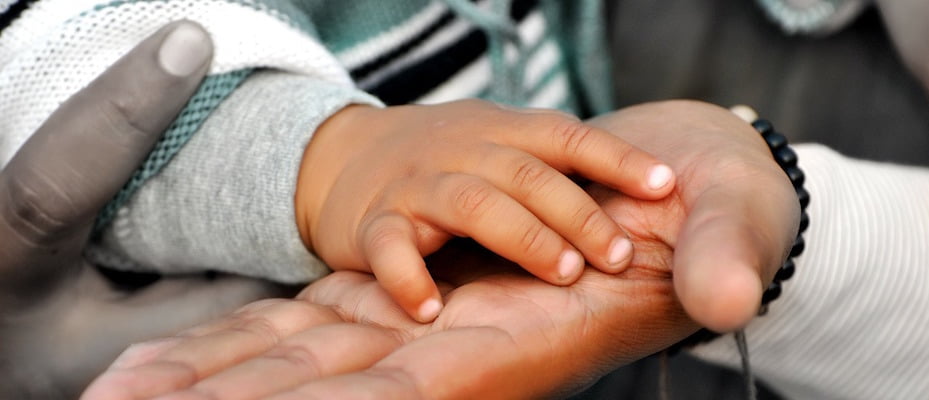Touch: trust, timidity and taboo workshop – commentary

Recently the DECP led the workshop ‘Touch: trust, timidity and taboo’. The workshop aimed to clarify some of the confusion experienced by many teachers, residential and foster carers, when it comes to touching children and young people in their care, whether it is to show affection, give confidence or reassurance, or to increase or prevent the child from inflicting hurt on herself/himself or others. Dr Julia Hardy provides a commentary on the workshop
“During the workshop, cognitive neuroscientist Francis McGlone, of Liverpool John Moores University, UK, spoke about a particular breed of nerve fibres that detect and carry caress pleasure signals to the brain. He emphasised the growing number of studies that show the sensation of touch, particularly in early life, profoundly sculpts our brains. We know young animals deprived of touch grow up with severe behavioural abnormalities and that babies do much better when held and touched frequently. More specifically these particular neurons respond to a gentle brush stroke. These slower C-tactile fibres are specifically activated by soft caresses. They respond optimally to low force, low velocity, stroking movements of around 3-5 centimetres a second. This kind of touch, known as social, emotional or “affective touch” is more activated by warm temperatures. McGlone acknowledged the heterogenity of our responses to touch needs to be held in mind, citing the example of children on the autistic spectrum, many of whom are very sensitive to touch, although reminding us also of Temple Grandin, who designed a squeeze machine, that provided calming, deep pressure stimulation that she had control over.
Other speakers spoke about the implications of lack of touch for those who have been rejected, neglected or abused. Laura Steckley, researcher and lecturer in residential child care in the university of Strathclyde, reminded us about the importance of containment in residential care, both for the young people and for the carers, and yet current practice is increasingly risk averse.
Research into physical restraint highlighted the perceived risks of touch, but that there is also an increasing legitimisation of the use of restraint over other forms of touching. Professor Heather Piper added to the concern that we advise staff working with children, not to touch. With a child protection, social work background, she described case studies, including those of a teacher accused of abuse, who was exonerated but lost his career as a teacher. She concluded that the problems of rigid, defensive practice, destroys trust. She argued that professional activity must be based on sophisticated judgement of context and motive. She argued that truly ethical practice does not slavishly follow ‘no touch’ guidelines, but puts touch in its proper context of relationships.
Tony Mancini, who is an educational psychologist specialising in work with Foster Care, elucidated the major threats, obstacles and challenges for foster carers. We know that a normal, healthy parent-child interaction should structure and enable interaction and engagement, be nurturing, calming and containing, protecting and keeping safe, whilst valuing and accepting. However foster carers are vulnerable on account of the prior experiences of those they care for. They are given thorough training & preparation for potential allegations and help to minimise risk though safer caring, together with the offer of help and support during allegations. Mancini also presented a model of resilience building and enabling for foster carers.
As professionals we mustn’t ignore the fact that affective, gentle, nurturing touch shapes the destiny of the social brain. Practitioners need to reflect on how to create an atmosphere in which children feel (over time) accepted, respected and understood. The DECP plan to take a proactive stance, connecting with practitioners and communicating agreed principles and guidelines for practitioners concerning touch in educational contexts and childcare.”
News coverage of this workshop was reported in the Times Educational Supplement (TES), The Independent, and The Telegraph.





[…] Affective touch is a powerful medium for conveying empathy between people, for example when acknowledging that a child is highly successful, anxious or upset. A large body of recent neurobiological and psychological research clearly demonstrates that affective touch activates a crucial nerve system in the skin of all mammals that defends against stress and promotes feelings of well-being. A lack of touch is linked to less ability to cope. Safe touch also promotes discussion about what is not safe or wanted by other people. […]